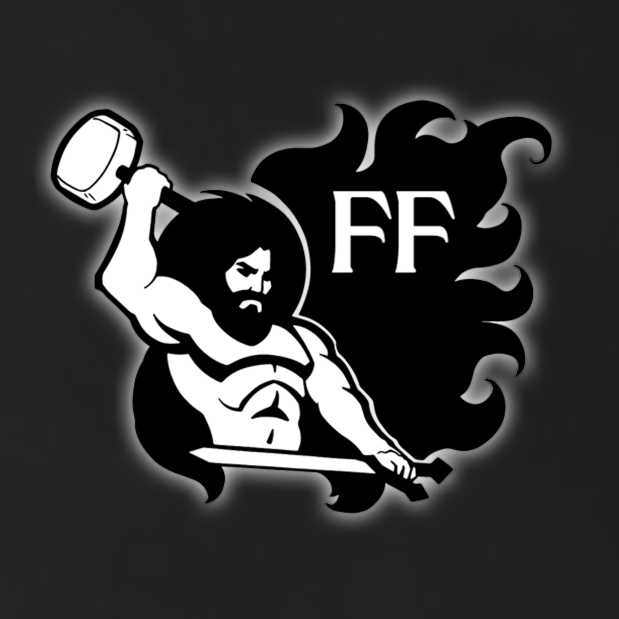
How to keep going when the road gets tough.
Nothing is constant in game development. There is very little that you can count on to make life easier. Here is a small list of things that change regularly:
What game genres are popular
Game engines
Your own interests as a developer
Social media algorithms
Marketing strategies
Your own life (getting married, get a new job, have kids etc.)
Your own capacities (sickness, mental health, mental bandwidth etc.)
The people who help you build a game
What publishers want
Marketplaces (Steam, Epic, etc.)
The best time of year to release…
The list goes on and on.
Being able to keep working even when the work is hard is critical. In fact, I’d wager it’s more important than having a good game idea in the first place.
Over the past several years I’ve gotten to know a developer that shows more grit than anyone else I’ve met. His game has had quite the journey, and at first it will sound like failure. That’s not how he saw it though, and he’s proved it is was all a blessing in disguise. Everytime he hit a tough point, he figured out how to learn and kept pushing.
We sat down for a conversation and I tried to get into his mind. I wanted to uncover the secret of his resilience. Hopefully, it inspires you in your own journey.
The Conversation
Tyler: Card games are notoriously hard to develop and balance, which makes it seem like a brave pick for you. Where did Fangs and Forges start, and why did you decide on a strategic card game?
Alex: It started with my brother and I wanting to create something. Honestly, we thought it would be easier than making a shooter! Now that I’ve made the game a couple times over, I realize just how hard the genre is.
The biggest problem is starting. Strategy games are are all pretty unique, so it is difficult to borrow code from other games or find templates. There was really nothing to speed up the early part of the process. A lot of other genres have more community support and tutorials which can make developing them more accessible at the beginning.
Glimpse of Luna actually started out as more than a digital game. As we came up with ideas, we realized nobody had really made a physical/digital hybrid card game we were impressed with. We wanted to fuse the fun of collecting physical cards with the ease of playing games online… so that was the first version of Fangs and Forges. Fangs and Forges is the brand new name with the new gameplay, but at the time it was called “Glimpse of Luna”.
We created a prototype, then brought on our Uncle to help drive the project further. We even had the cards printed by a company here in Germany. Once things were built out, we went in on a Kickstarter to really finish the project. Unfortunately, the Kickstarter campaign wasn’t successful and we had to rethink our approach. At that point, we decided to pursue the digital only route.

Above: The original physical version of the game.
Tyler: So what was the plan with the Kickstarter and where did you want to take things?
Alex: Well, you can’t achieve success on Kickstarter unless you have an audience and followers who are ready to jump in from the beginning. It’s a platform that isn’t great for getting discovered, and is better for capitalizing on your existing audience. That’s obvious now, but at the time we had no idea. You don’t know what you don’t know!
While we didn’t have experience crowd funding, we had a lot of experience in the business realm which definitely helped. We knew how to do our research and decided to ask for $250,000. That was the part we did right since the cost would really have been right around there. However, when the goal is so high even if it’s the correct number… without an audience nobody cares!
Honestly, we are lucky the Kickstarter didn’t succeed. There was clearly a lot of work left to do and we needed to keep developing the game. Having to rethink our next steps helped bring more out the game than we would have had if we succeeded.
Tyler: A lot of other developers are going to experience a failed Kickstarter in their career. I’ve had one myself. Unfortunately, we don’t talk about how to manage that as a community very often. Can you talk a little bit about how it felt to run a Kickstarter that didn’t succeed, and how you processed that internally?
Alex: No matter what, it hurts. There is no getting around that. However, knowing when to go hard and when to take breaks saves you. You push super hard during the campaign because that’s what is needed, but that’s not necessary forever. When the campaign failed we made sure to give everyone a break. We wanted to let everyone process things fully before we came back together. Knowing that a break was necessary instead of rushing into the next step really helped up heal and move forward.
It also helped that we were we gave it the best we could. When you give something your all, I think it makes processing easier in the long run. Nothing is worse than when you know you held back and that you could have done more. When you give it everything you can, it’s easier to accept and realign to the next goal.
Only after a few weeks off and plenty of time to recharge did we bring the team back. I developed a presentation about how to move forward with the game and we began. Getting rest, then starting with a very clear direction helped us move on.
Tyler: It would have been tempting to stop Glimpse of Luna and and start something entirely new. Why did you choose to keep refining the current project?
Alex: I have a hard time giving up on things. We had already spent some money and lots of time on the game, and I didn’t want to let that go to waste. It also helped that we had so many assets and so much lore built out, we definitely weren’t starting again from zero.
It also helps looking at other successful people. Anyone with success got there by failing a lot along the way. I knew that if we kept refining and pushing forward we would find our success. I don’t think achieving your goals is really up to chance. I think it’s about how far you are willing to go. What are you willing to sacrifice and how far will you push to make something happen? If you keep moving forward, you will find success.
Tyler: The next step was when the game became an online multiplayer game. Tell me a little bit about how that came to be?
Alex: The online concept was where we wanted to go without the physical portion of the game. However, getting to that stage took a lot of work.
We had a relationship with a team of developers who were helping program the game up to this point. We spent a lot of money on them and realized that we weren’t going to be able to use what they made without the physical component. We also struggled with that team and really felt like they didn’t deliver what we needed. Knowing that we couldn’t use them again but lacking the resources to hire another team, we needed to learn the programming ourselves. So we thought “it can’t be that hard to learn development right?”. Obviously, we were wrong about that!
My brother and I got started learning Unity and working side by side. At first I didn’t get it at all. I felt like I was reading a book in another language and it felt like that for a long time. What really helped me move forward was when I changed the way I set my goals. Instead of setting milestones based on being able to do certain things, I set goals around how long I worked. I figured that if worked on something long enough, eventually it would make sense. I started setting goals to work for “x” amount of time each day. It ended up being much more fun and I hit my goals more often! So as long as I followed through on that set amount of time, I felt accomplished, even if I didn’t feel like I learned much.
Then around the 100 hour mark things started to happen, and using Unity became fun.
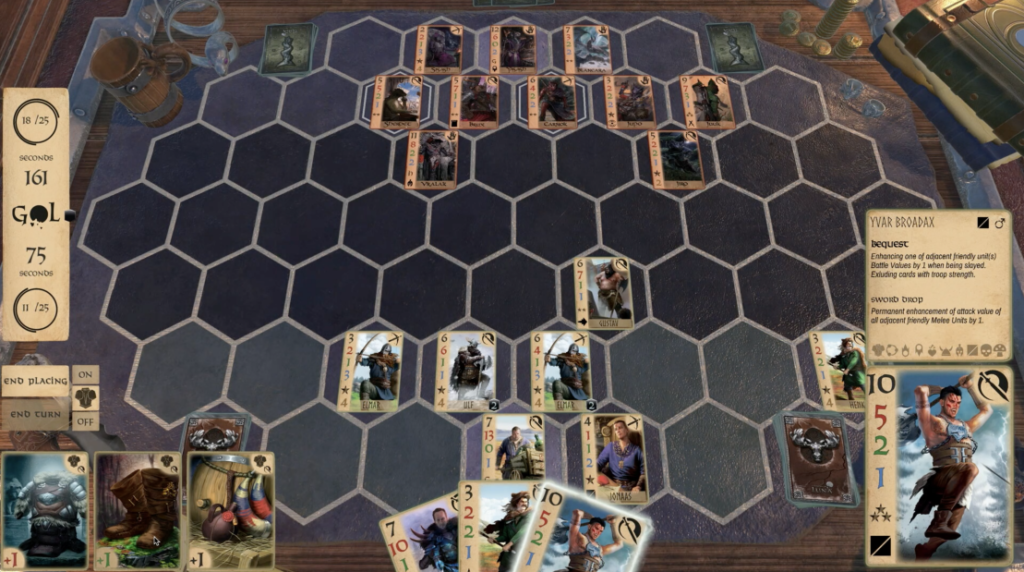
Above: The multiplayer version of the game.
Tyler: It wasn’t fun for a full 100 hours?! That takes some grit.
Alex: It took a long time and a lot of work, but it was worth it in the end!
Tyler: Most developers fail their kickstarters or take several tries to get it funded. What advice do you have developers seeing that decline?
Alex: Stop and take a break. Reflect on what happened objectively and come back with a better plan. Keep doing that process until you get it figured out, and don’t worry about it taking a few tries.
Tyler: What was the process for learning Unity?
Alex: Well, I started out just working on the simple game they try to teach you in their tutorials. Part way through it, I realized that I needed to just learn by making my own game. I felt like a lot of the skills I was learning were not going to be that transferable to my strategy game, and I was wasting time. So I pivoted and started learning Unity by making Glimpse of Luna.
I know a lot of people say you should start with a small game and go from there, but I actually have the opposite advice. Start the game you want to make right away. You certainly won’t make the perfect game you have in your mind. However you will learn the skills you need for your specific project.
I really began by youtubing “hex based games” and “tile based games” and seeing what I could learn from them. Then what really worked was finding tutorials on making an offline chess game. That was where I really found the advice I needed to learn how to make Glimpse of Luna. Honestly, it’s a skill to google and research. It took a little while before I learned what I really needed to search for to find the information I needed.
I had to get really consistent with my routine to make this happen. I woke every single day at 4:30 and worked for hours. This routine kept me very focused and made things more sustainable. I did this for a few months and it was during this time that I had the biggest leap.
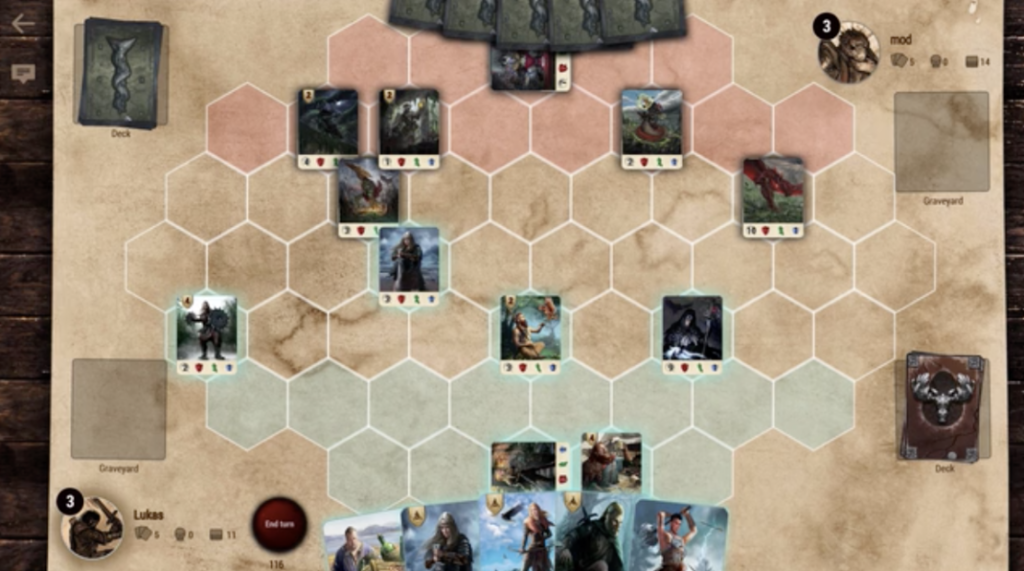
Above: The game during this initial development.
Tyler: At this point, were you still working with your brother? Were you bouncing ideas off of someone?
Alex: I still had him there. We knew it would take a lot of time to figure out the programming end. So while I worked on that, Nico worked on the world building and writing.
Tyler: If I remember, there was an open playtest of this new version of Glimpse of Luna. How long did it take to get from the Kickstarter to that point?
Alex: We started revealing the new version in October 2020 and we started the Alpha in December of 2020. It ran until we closed it down in March of 2022.
Tyler: Were you nervous about launching the beta to the public after your experience with the kickstarter?
Alex: Honestly, I was more nervous for the alpha in December than the beta launch. I wasn’t really sure I had the programming to a place it needed to be, and we had around 1,000 people in our community. Financially, I was less nervous. We were always excited and knew we were on the right path forward. Doubts are normal and I definitely had them from time to time. However, I worked to have awareness of them so I could work against it. Doubts are removed by action, and they really only crept in when we were drifting and figuring things out. At this point we were locked in and working hard and that definitely helped keep doubt away.
Ultimately, what we learned here was that free-to-play is not a very sustainable model with a smaller base of a couple thousand. We had people pay for in-game features, but it simply wasn’t enough to keep things going like that. It was like we started with a roaring campfire but ran out of wood after a few months.
Again, we were relieved that it wasn’t successful because it revealed even more ways we could improve the game.
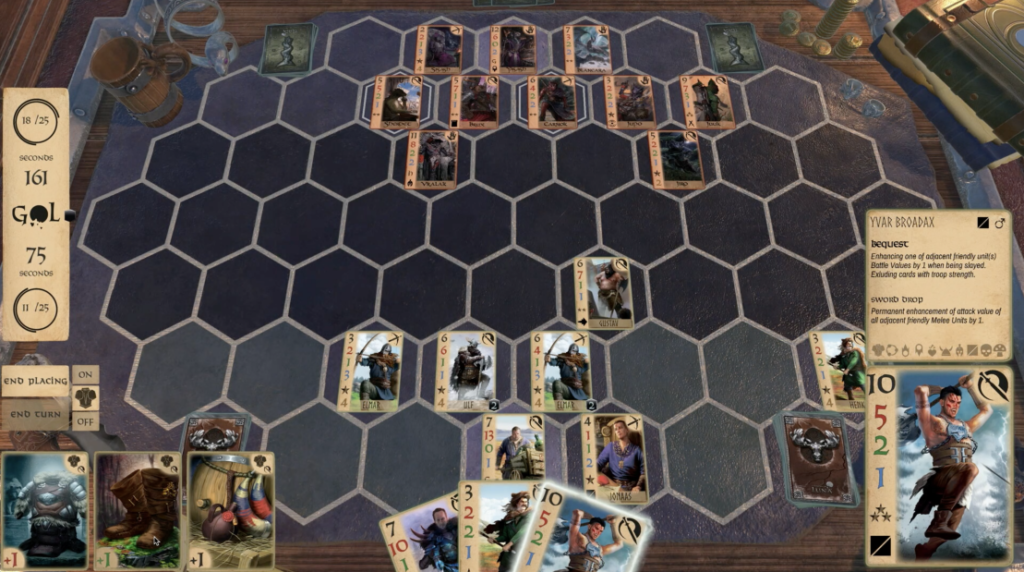
Tyler: So where are things going now? Why are you happy it didn’t work out?
Alex: We really learned a lot about the business end of game development. For the online multiplayer game to work out, we would need new content constantly. That simply would not have been sustainable without lots of power creep and burnout. Shutting it down allowed us to recalibrate and focus on our strengths.
It also allowed us to refocus on our community. If you don’t have a community, no matter what you do it will not work. So relaunching again will not only let us have much stronger game, but also a much stronger community.
Tyler: What do you mean when you say the new version of the game plays into your strengths?
Alex: First of all, it’s a single player game, which lets us focus on unique aspects more than server/community maintenance. It also uses the world we’ve built a lot more. My brother really created an amazing world for us to use, and this new version allows you to interact with it much more. There will be a lot more travel, and more interactions with in-game communities and characters. You’ll also unlock the map over time which help the game grow and expand more as you play.
Tyler: It seems like the failed launches were blessings in disguise. It must have hurt and taken a lot of strength to keep going. It sounds like the new version is not only the game at it’s best, but a game that’s much truer to you. Is that correct?
Alex: Definitely, but I value the personal growth we had more than the game’s growth. I learned so many skills and grew in my resilience.
Tyler: One last random question. You’ve mentioned to me before that you played professional hockey and that you also had a balanced life. Did having that team, the coaches and that experience impact your ability to do development?
Alex: Definitely, I learned a lot of grit through hockey and learned that I can’t just game all the time! It helped me make sure I was being creative, getting physical exercise and being social alongside of gaming. I definitely couldn’t have done this project without being a hockey player!
Glimpse of Luna recently had a big reveal. There is a new direction, new gameplay, and a new name! Glimpse of Luna is now “Fangs and Forges” and is absolutely its best version yet.
This carousel has just a few images of the new game and there is a lot more on their socials and website! Scroll through and see the how much it’s improved! Follow the links below and see more from Fangs and Forges 🙂

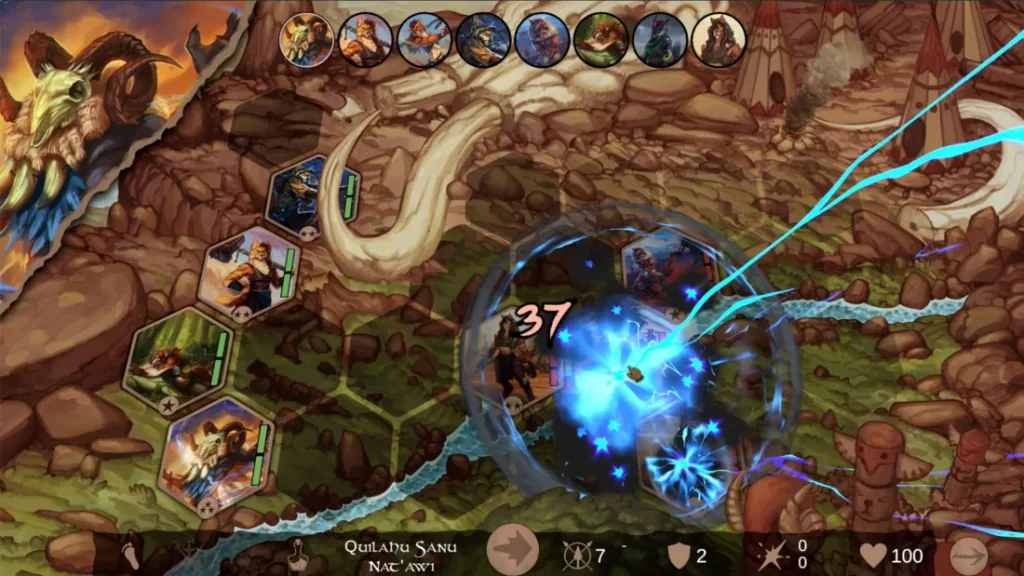
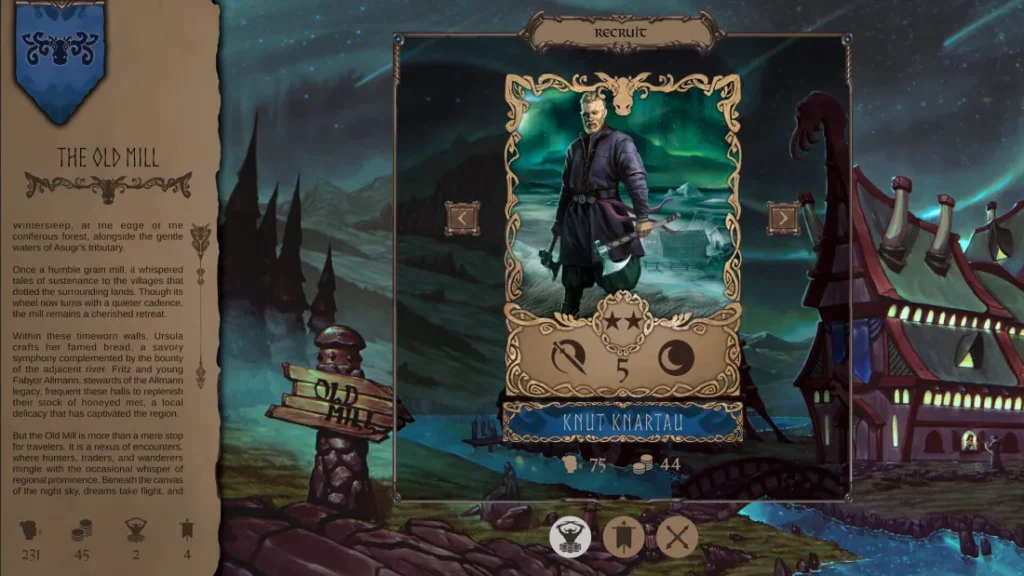
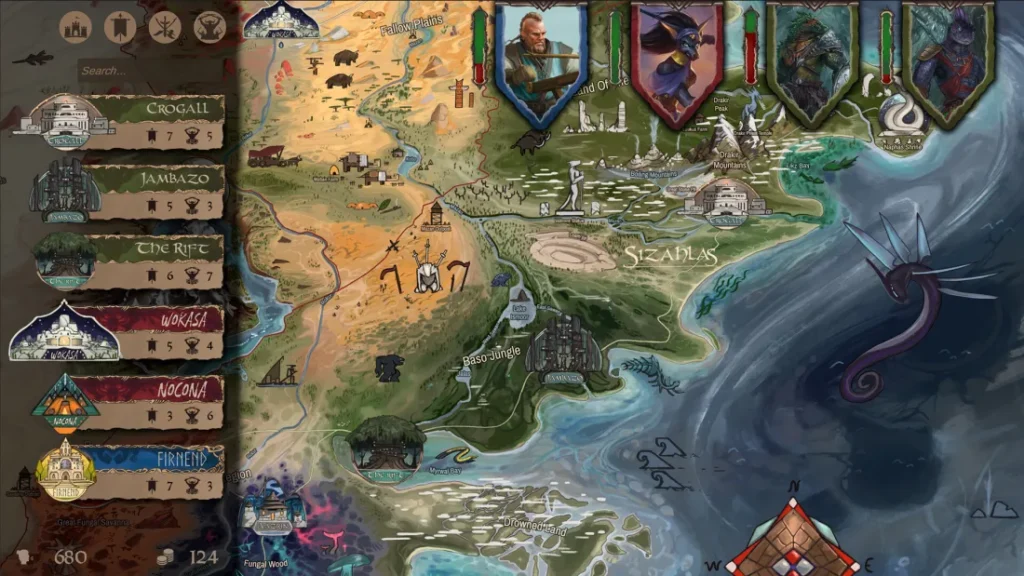
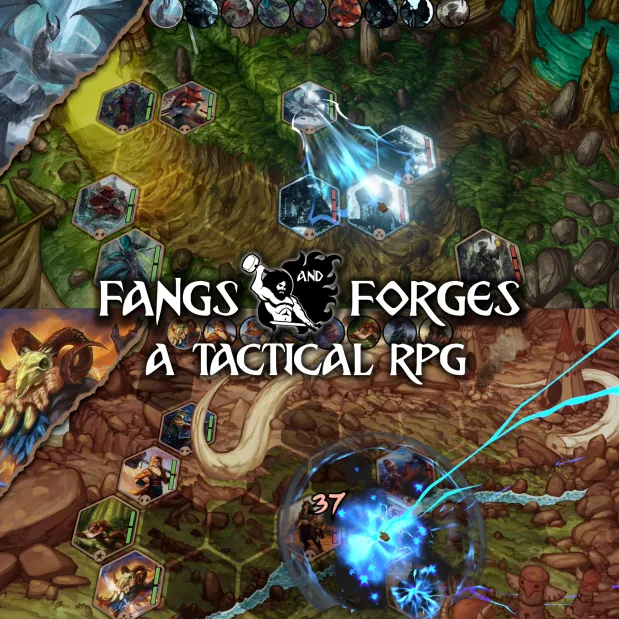
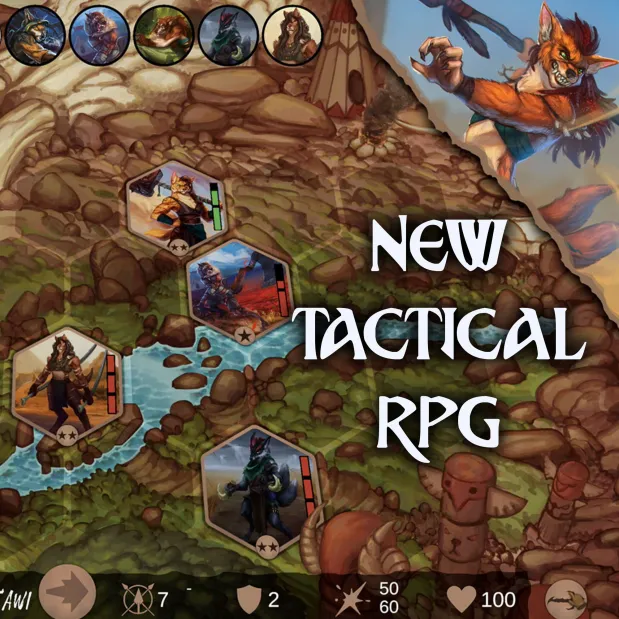
Check out the game here: https://store.steampowered.com/app/2993950/Fangs__Forges/
Check out the socials: @FangsAndForges
Join the discord: discord.gg/ykZsJj96pe
Check out the website: https://t.co/gYZpSkUwyl
I’m a composer who writes atmospheric music for indie games and films. Father of three, lover of Mexican food.
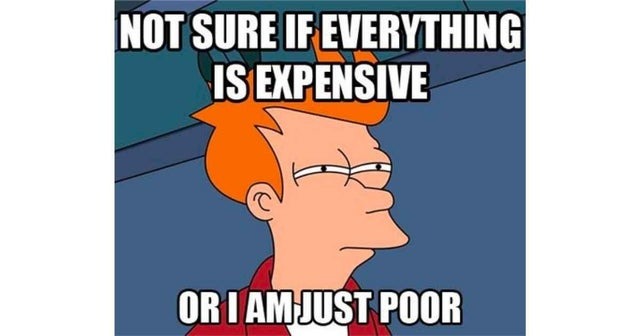
September 23, 2023
You can’t afford to be a composer.
